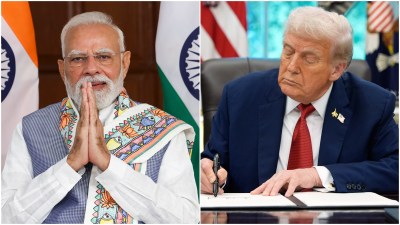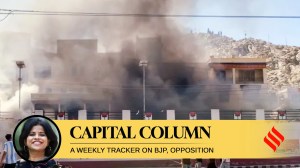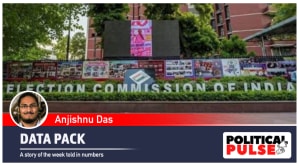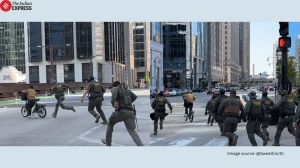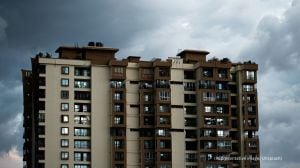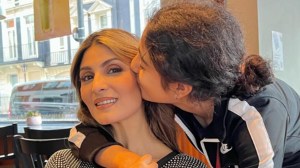King hopes to shake up Saudi Arabia with a ‘liberal’ university
Up the corniche, along a coast where boats carrying pilgrims bound for Mecca sailed for centuries...

Up the corniche, along a coast where boats carrying pilgrims bound for Mecca sailed for centuries, a thicket cranes rises over whitewashed mosques along the Red Sea. Steel flashes and blowtorches glow as 20,000 workers build a $10 billion university ordered up by a king who hopes Western ingenuity will revive the economy of this ultraconservative Muslim nation.
When finished next year, King Abdullah University of Science and Technology will offer coed classes, Western professors, a curriculum in English and other features loathed as dangerous liberalism by Islamic fundamentalists. The West might be dependent on Saudi crude oil, now as high as $145 a barrel, but this campus outside an ancient fishing village is recognition that the country that is home to Islam’s holiest shrines needs the likes of the University of Southern California, Oxford University and the Massachusetts Institute of Technology to survive globalisation.
An architect’s rendering shows a campus of canals and reflecting pools running along sleek silver and glass libraries and laboratories. A marina with slips for 140 boats stands in a cove lighted by a tapered beacon. Students and professors will live in villas and apartments looking out on date palms and furnished with eggshell and white Swedish-style sofas and chairs.
Saudis have studied in the US and Europe for decades, bringing back expertise without directly exposing the kingdom to Western classrooms and professors. But the new university is inviting the secular West a step closer in another ideological battle between Saudi reformers led by King Abdullah and the Wahhabi sect of puritanical Islam that has resisted outside influences since the days of desert caravans. “Saudis are beginning to realise they are not the centre of the universe,” said Tariq Maeena, a writer and aviation expert.
“The king hopes that a young Saudi will be in a class with an American professor. The king is jabbing the conservatives from all sides. He’s not doing it with a massive decree, but incrementally, and all the radicals can do is roll their eyes and say, ‘Uh-oh, we’re losing more power.’” Amira Kashgary, a literature professor at a women’s college, said, “We are part of the global world now. Whether we like it or not, and regardless of our political and religious systems, there are changes seeping through our lives. “The radicals ran a wicked Internet campaign against the university. They said it is another sign liberals are invading us.”
King Abdullah is building the university, along with six multibillion-dollar Economic Cities, to provide jobs and open the country to global markets. Conservatives fear that these international voices, from South Asian construction workers to Western scientists, will change the religious fabric. “Men and women learning together should remain forbidden,” said Mohammed Ben Yehia Nogeemy, a member of the Saudi Juristic Academy, a religious organization that issues fatwas. He said that such an atmosphere could be regarded as sedition and, “If any Saudi official has the intention to allow the establishment of a coeducational university, that will be a big mistake that will need to be corrected.” But the king, for now, is a step ahead of the conservatives. Nogeemy was not in attendance on a recent afternoon when oil money seduced brainpower at a hotel along the Red Sea in Jidda. Silver trays of hors d’oeuvres and alcohol-free Champagne glided through a crowd of Western academics gathered for a conference on the university’s goals. Soldiers with Humvees and .50-caliber machine guns stood guard outside to scare away would-be terrorists, while inside mathematicians and molecular biologists tried on blue university ball caps and pocketed Lamborghini pens left on seats as gifts. The university, known as KAUST, is promising academic freedom, the mixing of cultures and religions, and subjects as varied as nanotechnology and crop development. The country’s ubiquitous and often abusive morality police will not patrol the campus, depicted on the university’s interactive website with unveiled women. Going unveiled is a crime in Saudi society that can lead to lashings and imprisonment.





- 01
- 02
- 03
- 04
- 05


